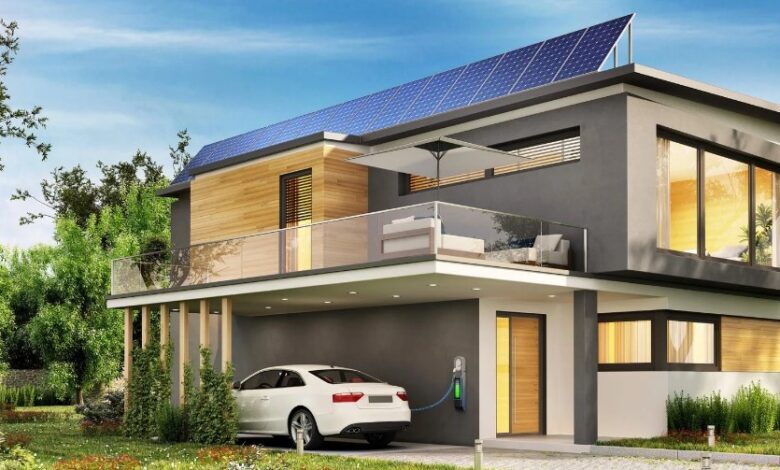Sustainable Off-Grid Living in Ontario: Insights from Haliburton Solar and Wind

Off grid living Ontario offers a sustainable and self-sufficient lifestyle that is becoming increasingly popular in Ontario. Haliburton Solar and Wind is at the forefront of this movement, providing innovative renewable energy solutions that make sustainable off-grid living possible. This guide offers insights from Haliburton Solar and Wind on how to achieve sustainable off-grid living in Ontario, from energy generation to practical tips and benefits.
The Concept of Sustainable Off-Grid Living
- Definition and Principles
- Sustainable Living: A lifestyle that minimizes environmental impact by using renewable resources, reducing waste, and conserving energy.
- Off-Grid Living: Living independently from public utilities by generating your own electricity, sourcing water, and managing waste sustainably.
- Importance of Sustainability
- Environmental Impact: Reducing reliance on fossil fuels and minimizing environmental footprints.
- Self-Sufficiency: Achieving independence from external utilities and resources.
Renewable Energy Solutions from Haliburton Solar and Wind
- Solar Energy Systems
- High-Efficiency Solar Panels: Capture maximum sunlight and convert it into electricity.
- Solar Water Heaters: Use solar energy to heat water, reducing the need for conventional water heating methods.
- Wind Energy Systems
- Wind Turbines: Generate electricity from wind, providing a complementary energy source to solar power.
- Hybrid Systems: Combine solar and wind energy systems for a reliable and continuous power supply.
- Battery Storage Solutions
- Energy Storage: Store excess energy generated during sunny or windy periods for use during cloudy days or calm periods.
- Reliable Power Supply: Ensure a consistent power supply, even when renewable energy generation is low.
- Water and Waste Management
- Rainwater Harvesting: Collect and store rainwater for household use, reducing dependence on external water sources.
- Composting Toilets: Manage waste sustainably by converting it into compost for gardening.
Practical Tips for Sustainable Off-Grid Living
- Energy Efficiency
- Energy-Saving Appliances: Use energy-efficient appliances to reduce electricity consumption.
- LED Lighting: Replace traditional bulbs with LED lights to save energy.
- Insulation: Properly insulate your home to reduce heating and cooling needs.
- Water Conservation
- Low-Flow Fixtures: Install low-flow faucets, showerheads, and toilets to conserve water.
- Greywater Recycling: Reuse greywater for irrigation and other non-potable purposes.
- Rainwater Collection: Set up rainwater harvesting systems to collect and store rainwater for household use.
- Sustainable Gardening
- Organic Gardening: Grow your own food using organic methods to reduce reliance on external food sources.
- Composting: Use composting toilets and kitchen waste to create nutrient-rich compost for your garden.
- Permaculture: Implement permaculture principles to create a self-sustaining garden ecosystem.
- Waste Reduction
- Recycling: Set up a recycling system to manage recyclable materials.
- Upcycling: Repurpose and upcycle items to reduce waste.
- Minimalist Lifestyle: Adopt a minimalist lifestyle to reduce consumption and waste.
Benefits of Sustainable Off-Grid Living
- Environmental Benefits
- Lower Carbon Footprint: Use renewable energy sources to reduce greenhouse gas emissions.
- Resource Conservation: Conserve water and reduce waste through sustainable practices.
- Economic Benefits
- Cost Savings: Generate your own electricity to eliminate monthly energy bills.
- Incentives and Rebates: Take advantage of government incentives and rebates to reduce initial setup costs.
- Health and Well-Being
- Clean Energy: Renewable energy sources produce no air pollution, resulting in cleaner air and a healthier living environment.
- Connection to Nature: Off-grid living promotes a closer connection to nature and a more fulfilling lifestyle.
- Community and Resilience
- Sustainable Communities: Off-grid living can extend beyond individual households to entire communities, creating sustainable and self-sufficient neighborhoods.
- Resilience: Off-grid systems enhance resilience to power outages and natural disasters, ensuring a continuous power supply.
Case Studies: Successful Sustainable Off-Grid Projects
- Residential Projects
- Case Study 1: A family in rural Ontario installed a combined solar and wind energy system, achieving complete energy independence and reducing their carbon footprint.
- Case Study 2: A couple in the Haliburton Highlands embraced off-grid living with a custom-designed solar and wind system, enjoying lower energy costs and a sustainable lifestyle.
- Commercial Projects
- Case Study 1: A remote lodge in Ontario utilized Haliburton Solar and Wind solutions to power their operations, providing a reliable energy source for guests and reducing operational costs.
- Case Study 2: A farm in Eastern Ontario integrated solar panels and wind turbines to power their agricultural activities, enhancing productivity and sustainability.
Conclusion
Sustainable off-grid living in Ontario is achievable with the innovative renewable energy solutions provided by Haliburton Solar and Wind. By harnessing solar and wind energy, implementing energy-efficient practices, and adopting sustainable living principles, you can achieve a self-sufficient and environmentally friendly lifestyle. Haliburton Solar and Wind offers the expertise, products, and services to help you succeed in your off-grid living journey, providing comprehensive support from planning and installation to maintenance and beyond. Embrace sustainable off-grid living with Haliburton Solar and Wind and enjoy the benefits of energy independence, cost savings, environmental sustainability, and an improved quality of life.




